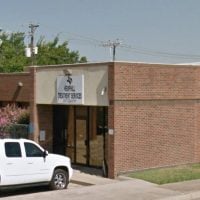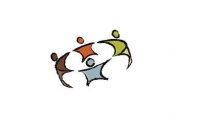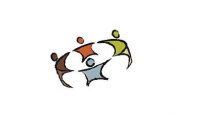North Texas Addiction Counseling
Drug Rehab Center in Fort Worth, Texas
North Texas Addiction Counseling is a licensed and accredited addiction treatment center in Fort Worth, TX providing personalized care and support through evidence-based therapeutic modalities such as individual therapy, cognitive behavioral treatment, family therapy, group therapy, couples therapy, life skills, and motivational interviewing.
Multiple patients have reported North Texas Addiction Counseling as permanently closed.
Research other rehabs in Fort Worth, Texas, or get help finding an open facility.
About North Texas Addiction Counseling in Texas
North Texas Addiction Counseling, situated in Arlington, Texas, is an outpatient drug and alcohol rehab facility that provides comprehensive addiction treatment and recovery-related community resources. They offer a range of addiction-related services, including DWI education, co-occurring disorder treatment, and medication-assisted treatment.
- The outpatient program offers a chemical dependency assessment, medical detox, medication management, individual and group counseling, parenting classes, anger management, and co-occurring disorder treatment.
- The facility houses the STOP program (Stop Tarrant County Opioid Poisoning), which coordinates community resources, fills gaps, and creates sustainable strategies to significantly reduce opioid deaths in Tarrant County.
- A specialized women-only outpatient addiction treatment program is available, catering to the unique needs of female clients.
North Texas Addiction Counseling utilizes medications such as methadone and suboxone for medication-assisted treatment, providing a comprehensive approach to addiction recovery.
The facility treats a variety of addictions, including alcoholism, opioid addiction, and substance abuse. They offer multiple levels of care, including outpatient treatment, intensive outpatient programs, and DWI education classes, which are conveniently offered online via Zoom.
Genders
Ages
Modality
Additional
Accreditations
State License
SAMHSA
Conditions and Issues Treated
Some addicts can benefit from substance abuse treatment, which is designed to help them become and remain sober without the use of medications. These programs are typically used by those struggling with drugs like marijuana or hallucinogens. However, they might be beneficial for those with a co-occurring mental health disorder like schizophrenia, major depression or bipolar disorder.
During this type of treatment, the addict will meet with therapists and other professionals on a regular basis to learn coping skills and healthy ways to deal with their addiction and mental health disorder.
Treatment programs often combine medications with counseling, support groups and even medical services like those found in hospitals or doctor’s offices. There are also detoxification services that addicts can use to get sober and avoid severe withdrawal symptoms.
Opioids are a group of drugs that include substances such as heroin, morphine, and oxycodone. These drugs activate opioid receptors in the brain, which produce pleasurable feelings. Opioid addiction occurs when drugs are abused at increasing rates or increasing amounts because the body becomes tolerant of them.
Opioid addiction is typically diagnosed when drug abuse becomes a typical behavior that interferes with an individual’s ability to function daily. The use of the substance results in consequences like legal problems.
Treatment for opioid addiction varies depending on each individual’s needs. Some treatments focus on replacing opioids with other drugs that have similar effects of reducing withdrawal symptoms. Other treatments aim to reduce the risk of relapse by providing psychological support or using more natural methods.
Levels of Care Offered
This center offers a variety of custom treatment tailored to individual recovery. Currently available are Aftercare Support, Drug Rehab, Intensive Outpatient, Intervention, Outpatient, with additional therapies available as listed below.
An intensive outpatient program is usually the first phase of addiction treatment. It provides relief for those addicted, but not ready to commit to an inpatient setting. IOPs consist of a daily 3 to 5-hour program, and there is a required number of hours per week. The goal here is to teach patients healthy coping skills, such as stress management.
Outpatient programs offer a lower intensity level of addiction treatment than inpatient facilities. They are ideal for those who have graduated from inpatient facilities, have a supportive home environment, and are motivated to commit to the program. Services offered include medication-assisted treatment, individual and group therapy, and peer group support.
This treatment is a popular option for those suffering from a lower intensity addiction. It is not advisable for someone who needs to go through a medically supervised detox or does not have a supportive home environment. It requires motivation and dedication to commit to the program without constant monitoring.
Interventions help families and friends express their feelings, express their desire for change, and plan for action. Interventionists are trained professionals who help family members plan or lead interventions. Family members should help choose an experienced professional to guide their loved one through treatment. Across the country, intervention services are available.
Aftercare Support in drug rehab is crucial because it helps people stay sober after treatment. Aftercare Support in drug rehab is helpful because it provides the recovering person with a support group, including family members, friends, and other peers who are also in recovery.
The benefits of Aftercare Support are that it provides a pathway that will help people get sober for life. It supports healing at all levels, physical, mental, emotional, and spiritual. Another benefit of Aftercare Support is that participants learn to maintain their sobriety through holistic methods. They learn to modify behaviors individually to have peace of mind, have positive relationships with others, and find peace on the inside.
Therapies & Programs
During individual therapy at North Texas Addiction Counseling in , the person in recovery meets with a therapist one on one to go over their situation and learn from past mistakes. The counselor or therapist will use this time to address the causes of addiction, triggers, and any mental issue or dual diagnosis. They will also address aftercare plans, giving them the best chances of long-term sobriety.
This therapeutic process is very intense and challenging to go through. Some clients may find it easier to open up with someone apart from their family or loved ones who understand their struggles and experience with addiction.
The process of going through couple’s therapy at North Texas Addiction Counseling in allows for both partners to be on the same page regarding addiction recovery. Whether one or both members of the couple struggled with addiction, they can improve their odds of sobriety by undergoing this treatment together. This therapeutic environment teaches how to communicate effectively and avoid relapse triggers while building healthy lifestyles that may help maintain sobriety following graduation from rehab programs.
Family therapy is designed to help addicts get clean and sober by using what they love the most; their family. Most drug treatment centers make it mandatory that the addict’s family attend therapy sessions, which is great because having everyone there to support them makes it much easier for them to get clean. Not only are they surrounded by people who want them to get better, but everyone is there because they want the best for them, not because they feel like they have to be.
Drug addicts are often surrounded by resentful or uneducated family members who would, at times, rather see them stay addicted because it makes their own lives easier. Sometimes they don’t understand what the addiction is or how they play a part in it. They know that during and after the addict’s sobriety journey, they will face challenges and changes that they aren’t sure how to handle. This can be very tough for an addict to go through on their own, which is why it’s so important that they have the support of their family. Just because someone is an addict does not mean that they don’t deserve the love and support of those around them.
Addicts in Fort Worth, TX can find support in group therapy at North Texas Addiction Counseling by finding peers who understand their situation and being held accountable. They also learn to develop faith, understanding, and insight into their addiction through shared conversations.
Group Therapy is employed by drug treatment centers to provide the recovering addict with a platform to talk about their feelings and experiences. It also provides for an opportunity to learn from other addicts who have successfully overcome their addiction. It is recommended that all group members be recovering addicts for this type of therapy to work.
Cognitive Behavioral Therapy (CBT) helps addicts comprehend the causes of their substance abuse and the consequences that follow. The treatment’s goal is to help addicts gain self-control and maintain abstinence from drugs and alcohol over the long term. Through CBT, clients learn to recognize and avoid high-risk situations and cope with challenging situations when they arise.
Many people who struggle with addiction in Fort Worth, Texas also have trouble managing their daily responsibilities after treatment. With this type of therapy, addicts are taught how to manage their time, attain specific goals, and take care of all facets of their lives without the influence of drugs or alcohol.
During these sessions, therapists will work with addicts to identify personal values and goals. They will then help addicts set goals for achieving those values and standards. In the process, therapists help addicts develop strategies for fulfilling their goals and successfully managing their responsibilities.
In many cases, this type of therapy is used in conjunction with other types of addiction treatment services to address specific issues that affect a recovering addict’s ability to stay sober.
Payment Options Accepted
For specific insurance or payment methods please contact us.
Additional Details
Specifics, location, and helpful extra information.
Fort Worth, Texas 76104 Phone Number(817) 795-8278 Meta DetailsUpdated April 15, 2024
Staff Verified
North Texas Addiction Counseling Patient Reviews
There are no reviews yet. Be the first one to write one.
Fort Worth, Texas Addiction Information
Texas is one of the primary hubs for drug smuggling into the country. The border between Texas and Mexico is more than 1,000 miles long. More than 10 million residents use alcohol every year and more than 25% of those are minors. Alcohol and drug use has become so common in Texas that almost 15% of all deaths can be attributed to these substances.
Fort Worth has the highest rate of drug overdoses in the state. 1 out of every 8 Fort Worth residents struggles with a substance abuse problem. In 2016, there were nearly 1,000 overdose deaths in the city. Prescription painkillers are often accessible and cheaper than street drugs. Heroin and methamphetamine are also becoming common addictions. Fort Worth has several detox and rehabilitation facilities that help individuals overcome their dependence on drugs and alcohol.
Treatment in Nearby Cities
- Baytown, TX (249.9 mi.)
- Decatur, TX (37.5 mi.)
- Spring Branch, TX (210.3 mi.)
- Canyon Lake, TX (205.5 mi.)
- Morgan, TX (52.3 mi.)
Centers near North Texas Addiction Counseling
The facility name, logo and brand are the property and registered trademarks of North Texas Addiction Counseling, and are being used for identification and informational purposes only. Use of these names, logos and brands shall not imply endorsement. RehabNow.org is not affiliated with or sponsored by North Texas Addiction Counseling.











